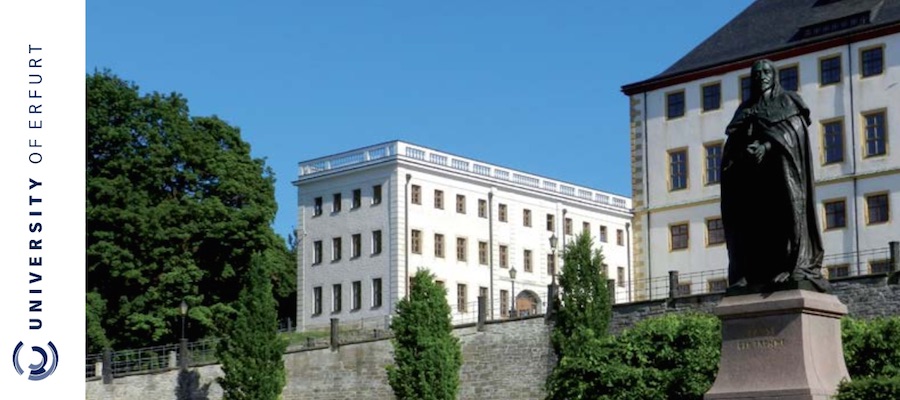Thanks to the generous support provided by the Ernst Abbe Foundation, the Gotha Research Center of the University of Erfut is able to once again offer scholarships to doctoral and post-doctoral fellows for the year 2020 to work with the collections of the Gotha Research Library.
Research Scholarships for PhD Students are awarded for periods of up to nine months and Postdoctoral Scholarships for up to six months. Moreover, we welcome in particular applications corresponding to the following grant types: exploration stipends for PhD candidates working on their dissertation as well as 'text and object' scholarships for PhD candidates and postdocs specializing on the relation between text and object. We also explicitly encourage applications for projects related to one of the Centre’s main research topics (profile-scholarships).
The Gotha Research Centre is an internationally renowned research institute of the University of Erfurt, maintaining close ties to the Gotha Research Library and the museums at Friedenstein Castle. Its main objective is to conduct and facilitate international interdisciplinary research projects in the field of cultural and intellectual history of the modern period. Applications should align with the interests of the Gotha Research Centre and collections of the Research Library:
- The ducal court in Gotha as an example for European court culture
- History of publishing and book trade
- History of science and cultures of knowledge as global history, history of transfer, and entangled history, 16th to 20th century
- History of European literature, particularly 16th to early 19th century
- Early Modern and 19th-century study of Classical religions, history of Protestantism, and Islam
- Philosophy and history of the German and European Enlightenment
- Heterodoxy, dissidence, and subversion
- History of the humanities, e.g. numismatics, oriental studies, philology
- History of natural science, e.g. alchemy, astronomy, physics and botany
- History of spatially oriented disciplines, 16th to 20th century, e.g. ethnology, geology, geography and statistics
- History of cartography and imperial history
- Cartography and “critical geopolitics”
- History of objects and the historical study of material culture
